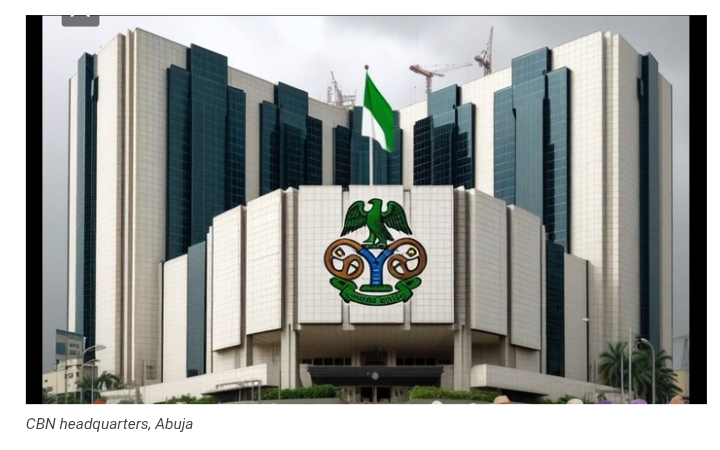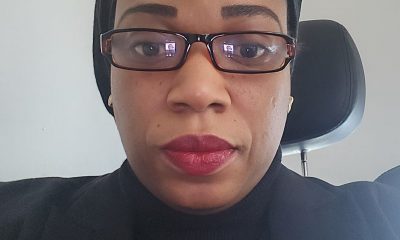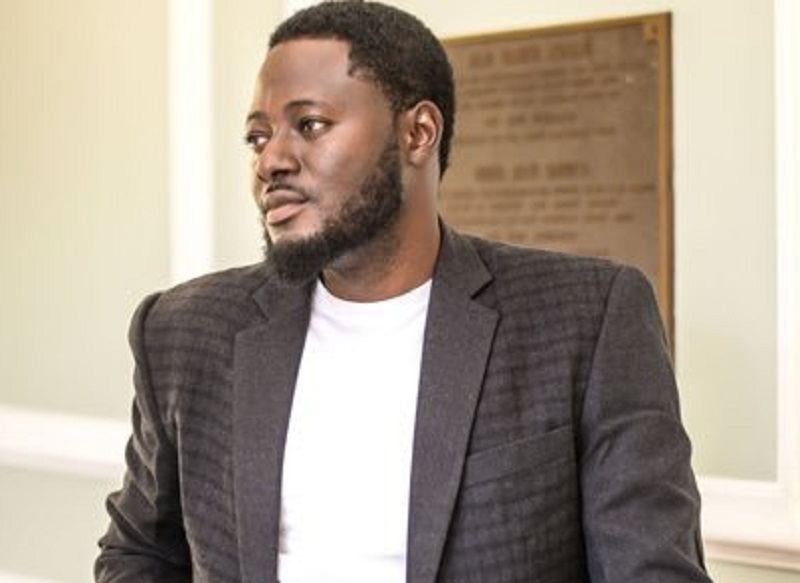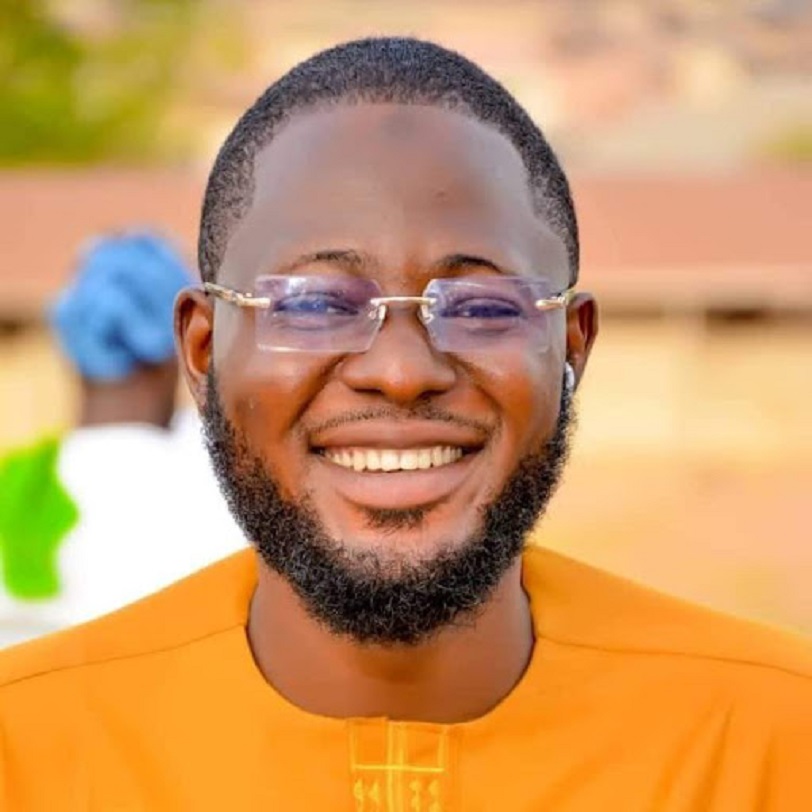Feature/OPED
Once Again, Late to the Party. When is Our Time?

By Rahaman Abiola
Nigeria’s modern media landscape hardly appears to be modern. It races behind in the realm of technology and its integration into the media ecosystem. This discrepancy is particularly noticeable in the context of the burgeoning era of artificial intelligence.
Only 20% of media companies in Africa are using AI in some way. This is compared to 40% of media companies in North America and 30% of media companies in Europe according to the Reuters Institute of Journalism’s Digital Media Report for 2023
According to the United Nations Conference on Trade and Development, a low share of skilled talents and slow download speed has impacted the adoption of Artificial intelligence in low-income and middle-income countries like Nigeria. This was reported by Punch newspaper in January 2023.
Before we delve deeper into AI and all that would bring us closer to the ‘party’, there is a need to understand the African media scene and the need for technology acceptance. The changes we’ll discuss vary from one country to another but share common elements that can benefit journalism, media outlets, and public discourse. The three most important developments driven by technological and market forces today are:
- The move to an increasingly digital, mobile, and social media environment is marked by increasingly intense competition for attention. Legacy media, like broadcasters and especially newspapers, continue to play a crucial role as news producers. However, they are becoming relatively less important as distributors of news and are under growing pressure to develop new digital business models as their existing operations decline or stagnate.
- The growing importance of a limited number of large social-networking, and technology-dependent companies like Meta, Tik-tok, Twitter and LinkedIN is noteworthy. These companies enable billions of users across the world to navigate and use digital media effortlessly through services like search, social networking, video sharing, messaging, and more. As a result, these tech giants are playing an increasingly significant role in (a) the distribution of news and (b) digital advertising.
- The development of a high-choice media environment. Internet users have access to an ever-expanding pool of information in convenient formats, often at no cost. It enables new forms of participation. News enthusiasts are encouraged to get, share, and comment on news at any social media platform they like.
Africa, Especially Nigeria, Seems Late to the Trendjacking of the New Tech Innovation in the Media
In an article written by Eloine Barry, titled ‘Africa Needs a New Generation of Media,’ Barry inferred that the African media industry has to pick up the pace on leveraging new technology. However, it is essential for the industry to grow its base of knowledgeable and upskilled media professionals. These professionals should be equipped not only to navigate the new age of technology but also to succeed in it.
The question to our media counterparts is how many of our companies have these skilled professionals who can wield new technologies to turn the media landscape around? If none, what are we doing to evolve like our foreign counterparts?
AI is already having a major impact on the media industry around the world. It is being used to personalise news feeds, generate new content, and even identify and fact-check misinformation. But in Nigeria, the use of AI in the media is still in its early stages.
This is a problem. If the Nigerian media does not embrace AI soon, it will be at a serious disadvantage. In a world where information is increasingly consumed online, media companies that can use AI to deliver personalised and engaging content will be the ones that succeed.
There are a number of ways that the Nigerian media can embrace AI. One way is to use AI to personalise news feeds. This can be done by using algorithms to track what users read and watch, and then recommending similar content to them. Another way to use AI is to generate new content. AI can be used to write articles, create videos, and even generate entire news shows. Finally, AI can be used to identify and fact-check misinformation. This is especially important in Nigeria, where misinformation is a major problem. But there are a number of challenges that the Nigerian media face in embracing AI.
One challenge is the lack of access to resources. AI is a complex technology, and it requires a lot of computing power and data to develop and use AI-powered applications.
Another challenge is the lack of expertise. There are not a lot of people in Nigeria with the skills and knowledge necessary to develop and use AI applications. Sadly, one would expect that where Nigeria is low on special resources, we would turn to collaboration, to ensure we aren’t left behind, or turn to our government or parastatal companies to aid investment in the media landscape evolution, instead these routes are hardly explored.
Despite these challenges, it is crucial for the Nigerian media to adopt artificial intelligence. This technology represents the future of the media industry, and media companies failing to embrace it may find themselves falling behind.
When is Our Time?
The time for the Nigerian media to embrace AI is now. We cannot afford to fall behind any further. We need to invest in resources and expertise. We need to start developing and using AI-powered applications.
Here are some specific things that media companies in Nigeria can do to embrace AI:
- Invest in AI-Driven Advertising to optimise ad placements and targeting. Beyond the regular Google Ads and Facebook Ads, media companies can widen their earning horizon by leveraging other AI-Driven advertising channels like Amazon Advertising, Adobe Advertising Cloud, The Trade Desk, AppNexus, MediaMath, Criteo, Taboola and Outbrain. Once done, employ people who are skilled in using these platforms to successfully run advertising campaigns for clients and make more money.
- Adopt AI-powered apps for daily routine in the newsroom. Media companies in Nigeria can use AI to personalise news feeds, generate new content, and identify and fact-check misinformation. Now than ever, the Nigerian media needs to amp up on Automated fact-checking tools like Full Fact or ClaimBuster to verify the accuracy of news and information; leverage predictive analytics tools that use machine learning algorithms to predict audience behaviour and trends; personalization engines to tailor content to individual users preferences; and even cybersecurity solutions to detect and prevent threats real-time and protect cyberattack incidents.
- Partner with tech companies. There are a number of tech companies that are developing AI-powered applications for the media industry. NVIDIA’s Inception programme for startups, a Nigerian company that developed Africa’s first speech-to-text AI chat tool capable of understanding 200 African accents. Another Nigerian startup, Data Science Nigeria (DSN), enables AI talents and builds AI solutions to enhance the lives of people. The possibilities of these collaborations are endless. Media companies in Nigeria can create content to cater to a diverse audience, cutting through language barriers and expanding coverage.
On a Good Note
Several Nigerian media companies are taking proactive steps to embrace artificial intelligence. For instance, Legit.ng is employing AI to personalize news feeds and create fresh content. Similarly, media outlets like Dubawa and The Cable are harnessing AI to detect and fact-check misinformation.
This trend shows a significant realization within the Nigerian media landscape about the crucial role AI can play. With this momentum, there is confidence that the Nigerian media will soon align with global AI trends in the media industry. If we are lucky to catch up soon, then maybe by then, we wouldn’t be too late to the party.
Rahaman Abiola is Legit.ng’s Editor-in-Chief, and the youngest EIC in the history of the leading digital media news publisher. He is a Reuters-trained journalist and content writer with over 7-year experience in digital & traditional media and social media communications.
Rahaman has been published in Nigerian national newspapers, including The Nation, The Punch, Nigerian Tribune, and THISDAY. His works have appeared in top digital media platforms, including Sahara Reporters, The Cable, The Capital, YNAIJA, Lawyard, Paradigm.
A graduate of English and Literature from Obafemi Awolowo University (OAU), Rahaman is one of the 25 journalists in Africa selected for the Kwame Karikari Fact-Checking Fellowship in 2021.
Feature/OPED
Brent’s Jump Collides with CBN Easing, Exposes Policy-lag Arbitrage

Nigeria is entering a timing-sensitive macro set-up as the oil complex reprices disruption risk and the US dollar firms. Brent moved violently this week, settling at $77.74 on 02 March, up 6.68% on the day, after trading as high as $82.37 before settling around $78.07 on 3 March. For Nigeria, the immediate hook is the overlap with domestic policy: the Central Bank of Nigeria (CBN) has just cut its Monetary Policy Rate (MPR) by 50 basis points to 26.50%, whilst headline inflation is still 15.10% year on year in January.
“Investors often talk about Nigeria as an oil story, but the market response is frequently a timing story,” said David Barrett, Chief Executive Officer, EBC Financial Group (UK) Ltd. “When the pass-through clock runs ahead of the policy clock, inflation risk, and United States Dollar (USD) demand can show up before any oil benefit is felt in day-to-day liquidity.”
Policy and Pricing Regime Shift: One Shock, Different Clocks
EBC Financial Group (“EBC”) frames Nigeria’s current set-up as “policy-lag arbitrage”: the same external energy shock can hit domestic costs, FX liquidity, and monetary transmission on different timelines. A risk premium that begins in crude can quickly show up in delivered costs through freight and insurance, and EBC notes that downstream pressure has been visible in refined markets, with jet fuel and diesel cash premiums hitting multi-year highs.
Market Impact: Oil Support is Conditional, Pass-through is Not
EBC points out that higher crude is not automatically supportive of the naira in the short run because “oil buffer” depends on how quickly external receipts translate into market-clearing USD liquidity. Recent price action illustrates the sensitivity: the naira was quoted at 1,344 per dollar on the official market on 19 February, compared with 1,357 a week earlier, whilst street trading was cited around 1,385.
At the same time, Nigeria’s inflation channel can move quickly even during disinflation: headline inflation eased to 15.10% in January from 15.15% in December, and food inflation slowed to 8.89% from 10.84%, but energy-led transport and logistics costs can reintroduce pressure if the risk premium persists. EBC also points to a broader Nigeria-specific reality: the economy grew 4.07% year on year in 4Q25, with the oil sector expanding 6.79% and non-oil 3.99%, whilst average daily oil production slipped to 1.58 million bpd from 1.64 million bpd in 3Q25. That mix supports external-balance potential, but it also underscores why the domestic liquidity benefit can arrive with a lag.
Nigeria’s Buffer Looks Stronger, but It Does Not Eliminate Sequencing Risk
EBC sees that near-term external resilience is improving. The CBN Governor said gross external reserves rose to USD 50.45 billion as of 16 February 2026, equivalent to 9.68 months of import cover for goods and services. Even so, EBC views the market’s focus as pragmatic: in a risk-off tape, investors tend to price the order of transmission, not the eventual balance-of-payments benefit.
In the near term, EBC expects attention to rotate to scheduled energy and policy signposts that can confirm whether the current repricing is a short, violent adjustment or a more durable regime shift, including the U.S. Energy Information Administration (EIA) Short-Term Energy Outlook (10 March 2026), OPEC’s Monthly Oil Market Report (11 March 2026), and the U.S. Federal Reserve meeting (17 to 18 March 2026). On the domestic calendar, the CBN’s published schedule points to the next Monetary Policy Committee meeting on 19 to 20 May 2026.
Risk Frame: The Market Prices the Lag, Not the Headline
EBC cautions that outcomes are asymmetric. A rapid de-escalation could compress the crude risk premium quickly, but once freight, insurance, and hedging behaviour adjust, second-round effects can linger through inflation uncertainty and a more persistent USD bid.
“Oil can act as a shock absorber for Nigeria, but only when the liquidity channel is working,” Barrett added. “If USD conditions tighten first and domestic pass-through accelerates, the market prices the lag, not the headline oil price.”
Brent remains an anchor instrument for tracking this timing risk because it links energy-led inflation expectations, USD liquidity, and emerging-market risk appetite in one market. EBC Commodities offering provides access to Brent Crude Spot (XBRUSD) via its trading platform for following energy-driven macro volatility through a single instrument.
Feature/OPED
Gen Alpha: Africa’s Digital Architects, Not Your Target Audience

By Emma Kendrick Cox
This year, the eldest Gen Alpha turns 16.
That means they aren’t just the future of our work anymore. They are officially calling for a seat at the table, and they’ve brought their own chairs. And if you’re still calling this generation born between 2010 and 2025 the iPad generation, then I hate to break it to you, but you’re already obsolete. To the uninitiated, they look like a screen-addicted mystery. To those of us paying attention, they are the most sophisticated, commercially potent, and culturally fluent architects Africa has ever seen.
Why? Because Alphas were not born alongside the internet. They were born inside it. And by 2030, Africa will be home to one in every three Gen Alphas on the planet.
QWERTY the Dinosaur
We are witnessing the rise of a generation that writes via Siri and speech-to-text before they can even hold a pencil. With 63% of these kids navigating smartphones by age five, they don’t see a QWERTY keyboard as a tool. They see it as a speed bump, the long route, an inefficient use of their bandwidth. They don’t need to learn how to use tech because they were born with the ability to command their entire environment with a voice note or a swipe.
They are platform agnostic by instinct. They don’t see boundaries between devices. They’ll migrate from an Android phone to a Smart TV to an iPhone without breaking their stride. To them, the hardware is invisible…it’s the experience that matters.
They recognise brand identities long before they know the alphabet. I share a home with a peak Gen Alpha, age six and a half (don’t I dare forget that half). When she hears the ding-ding-ding-ding-ding of South Africa’s largest bank, Capitec’s POS machine, she calls it out instantly: “Mum! Someone just paid with Capitec!” It suddenly gives a whole new meaning to the theory of brand recall, in a case like this, extending it into a mental map of the financial world drawn long before Grade 2.
And it ultimately lands on this: This generation doesn’t want to just view your brand from behind a glass screen. They want to touch it, hear it, inhabit it, and remix it. If they can’t live inside your world, you’re literally just static.
The Uno Reverse card
Unlike any generation we’ve seen to date, households from Lagos to Joburg and beyond now see Alphas hold the ultimate Uno Reverse card on purchasing power. With 80% of parents admitting their kids dictate what the family buys, these Alphas are the unofficial CTOs and Procurement Officers of the home:
-
The hardware veto: Parents pay the bill, but Alphas pick the ISP based on Roblox latency and YouTube 4K buffers.
-
The Urban/Rural bridge: In the cities, they’re barking orders at Alexa. In rural areas, they are the ones translating tech for their families and narrowing the digital divide from the inside out.
-
The death of passive: I’ll fall on my sword when I say that with this generation, the word consumer is dead. It implies they just sit there and take what you give them, when, on the contrary, it is the total opposite. Alphas are Architectural. They are not going to buy your product unless they can co-author the experience from end to end.
As this generation creeps closer and closer to our bullseye, the team here at Irvine Partners has stopped looking at Gen Alpha as a demographic and started seeing them as the new infrastructure of the African market. They are mega-precise, fast, and surgically informed.
Believe me when I say they’ve already moved into your industry and started knocking down the walls. The only question is: are you building something they actually want to live in, or are you just a FaceTime call they are about to decline?
Pay attention. Big moves are coming. The architects are here.
Emma Kendrick Cox is an Executive Creative Director at Irvine Partners
Feature/OPED
Why Digital Trust Matters: Secure, Responsible AI for African SMEs?

By Kehinde Ogundare
For years, security for SMEs across sub-Saharan Africa meant metal grilles and alarm systems. Today, the most significant risks are invisible and growing faster than most businesses realise.
Artificial Intelligence has quietly embedded itself into everyday operations. The chatbot responding to customers at midnight, the system forecasting inventory requirements, and the software identifying unusual transactions are no longer experimental technologies. They are becoming standard features of modern business tools.
Last month’s observance of Safer Internet Day on February 10, themed ‘Smart tech, safe choices’, marked a pivotal moment. As AI adoption accelerates, the conversation must shift from whether businesses should use AI to how they deploy it responsibly. For SMEs across Africa, digital trust is no longer a technical consideration. It is a strategic business imperative.
The evolving threat landscape
Cybersecurity threats facing sub-Saharan African SMEs have moved well beyond basic phishing emails. Globally, cybercrime costs are projected to reach $10.5 trillion this year, fuelled by generative AI and increasingly sophisticated social engineering techniques. Ransomware attacks now paralyse entire operations, while other threats quietly extract sensitive customer data over extended periods.
The regional impact is equally significant. More than 70% of South African SMEs report experiencing at least one attempted cyberattack, and Nigeria faces an average of 3,759 cyberattacks per week on its businesses. Kenya recorded 2.54 billion cyber threat incidents in the first quarter of 2025 alone, whilst Africa loses approximately 10% of its GDP to cyberattacks annually.
The hidden risk of fragmentation
A common but often overlooked vulnerability lies in digital fragmentation.
In the early stages of growth, SMEs understandably prioritise affordability and agility. Over time, this can result in a patchwork of disconnected applications, each with separate logins, security standards, and privacy policies. What begins as flexibility can involve operational complexity.
According to IBM Security’s Cost of a Data Breach Report, companies with highly fragmented security environments experienced average breach costs of $4.88 million in 2024.
Fragmented systems create blind spots; each additional data transfer between applications increases exposure. Inconsistent security protocols make governance harder to enforce. Limited visibility reduces the ability to detect anomalies early. In practical terms, complexity increases risk.
Privacy-first AI as a competitive differentiator
As AI capabilities become embedded in business software, SMEs face a choice about how they approach these powerful tools. The risks are not merely theoretical.
Consumers across Africa are becoming more aware of data rights and are willing to walk away from businesses that cannot demonstrate trustworthiness. According to KPMG’s Trust in AI report, approximately 70% of adults do not trust companies to use AI responsibly, and 81% expect misuse. Meanwhile, studies also show that 71% of consumers would stop doing business with a company that mishandles information.
Trust, once lost, is difficult to rebuild. In the digital age, a single data leak can destroy a reputation that took ten years to build. When customers share their payment details or purchase history, they extend trust. How you handle that trust, particularly when AI processes their data, determines whether they return or take their business elsewhere.
Privacy-first, responsible AI design means building intelligence into business systems with data protection, transparency and ethical use embedded from the outset. It involves collecting only necessary information, storing it securely, being transparent about how AI makes decisions, and ensuring algorithms work without compromising customer privacy. For SMEs, this might mean choosing inventory software where predictive AI runs on your own data without sending it externally, or customer service platforms that analyse patterns without exposing individual records. When AI is built responsibly into unified platforms, it becomes a competitive advantage: you gain operational efficiency whilst demonstrating that customer data is protected, not exploited.
Unified platforms and operational resilience
The solution lies in rethinking digital infrastructure. Rather than accumulating disparate tools, businesses need unified platforms that integrate core functions whilst maintaining consistent security protocols.
A unified approach means choosing cloud-based platforms where functions share common security standards, and data flows seamlessly. For a manufacturing SME, this means inventory management, order processing and financial reporting operate within a single security framework.
When everything operates cohesively, security gaps diminish, and the attack surface shrinks. And the benefits extend beyond risk reduction: employees spend less time on administrative friction, customer data stays consistent, and platforms enable secure collaboration without traditional infrastructure costs.
Safer Internet Day reminds us that the digital world requires active stewardship. For SMEs across the African continent who are navigating complex threats whilst harnessing AI’s potential, digital trust is foundational to sustainable growth. Security, privacy and responsible AI are essential characteristics of any technology infrastructure worth building upon. Businesses that embrace unified, privacy-first platforms will be more resilient against cyber threats and better positioned to earn and maintain trust. In a market where trust is currency, that advantage is everything.
Kehinde Ogundare is the Country Head for Zoho Nigeria
-

 Feature/OPED6 years ago
Feature/OPED6 years agoDavos was Different this year
-
Travel/Tourism10 years ago
Lagos Seals Western Lodge Hotel In Ikorodu
-

 Showbiz3 years ago
Showbiz3 years agoEstranged Lover Releases Videos of Empress Njamah Bathing
-

 Banking8 years ago
Banking8 years agoSort Codes of GTBank Branches in Nigeria
-

 Economy3 years ago
Economy3 years agoSubsidy Removal: CNG at N130 Per Litre Cheaper Than Petrol—IPMAN
-

 Banking3 years ago
Banking3 years agoSort Codes of UBA Branches in Nigeria
-

 Banking3 years ago
Banking3 years agoFirst Bank Announces Planned Downtime
-

 Sports3 years ago
Sports3 years agoHighest Paid Nigerian Footballer – How Much Do Nigerian Footballers Earn




















